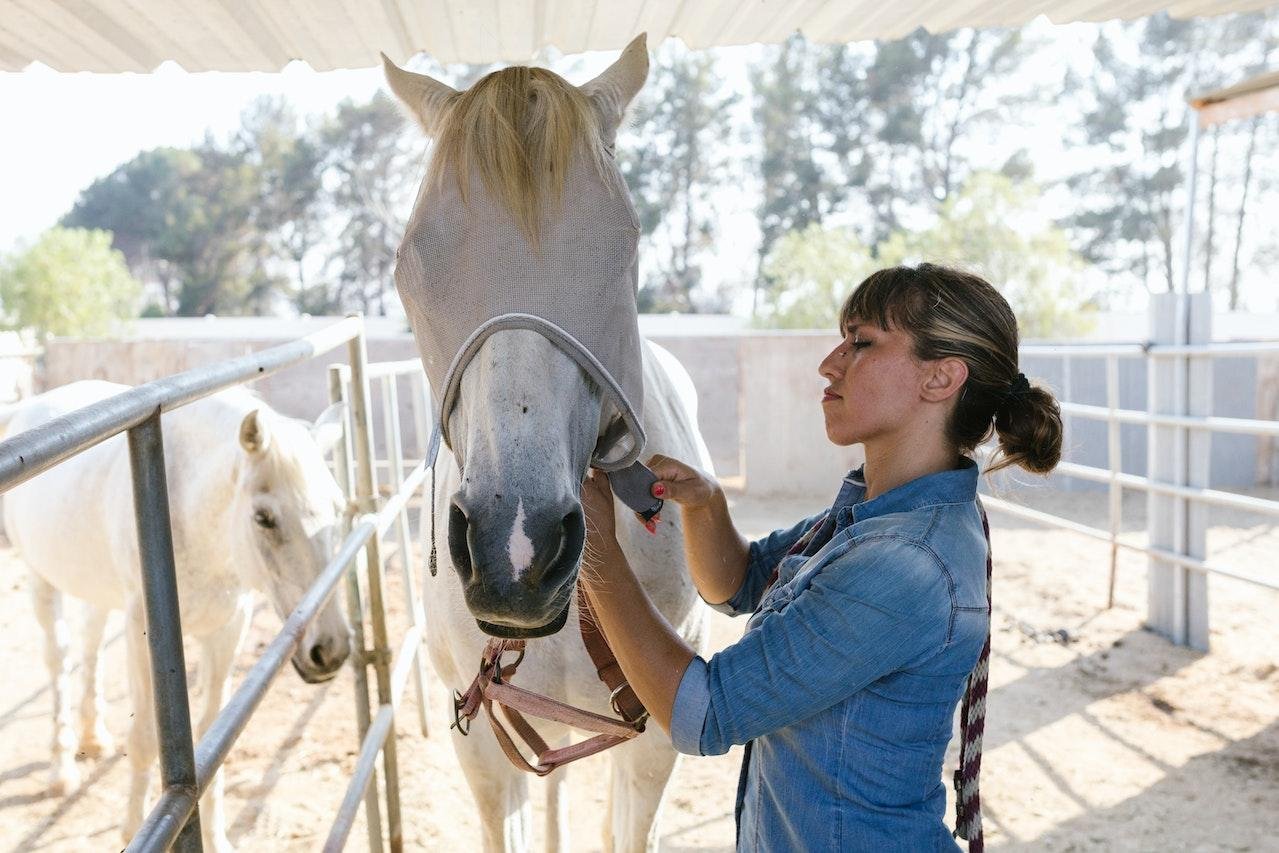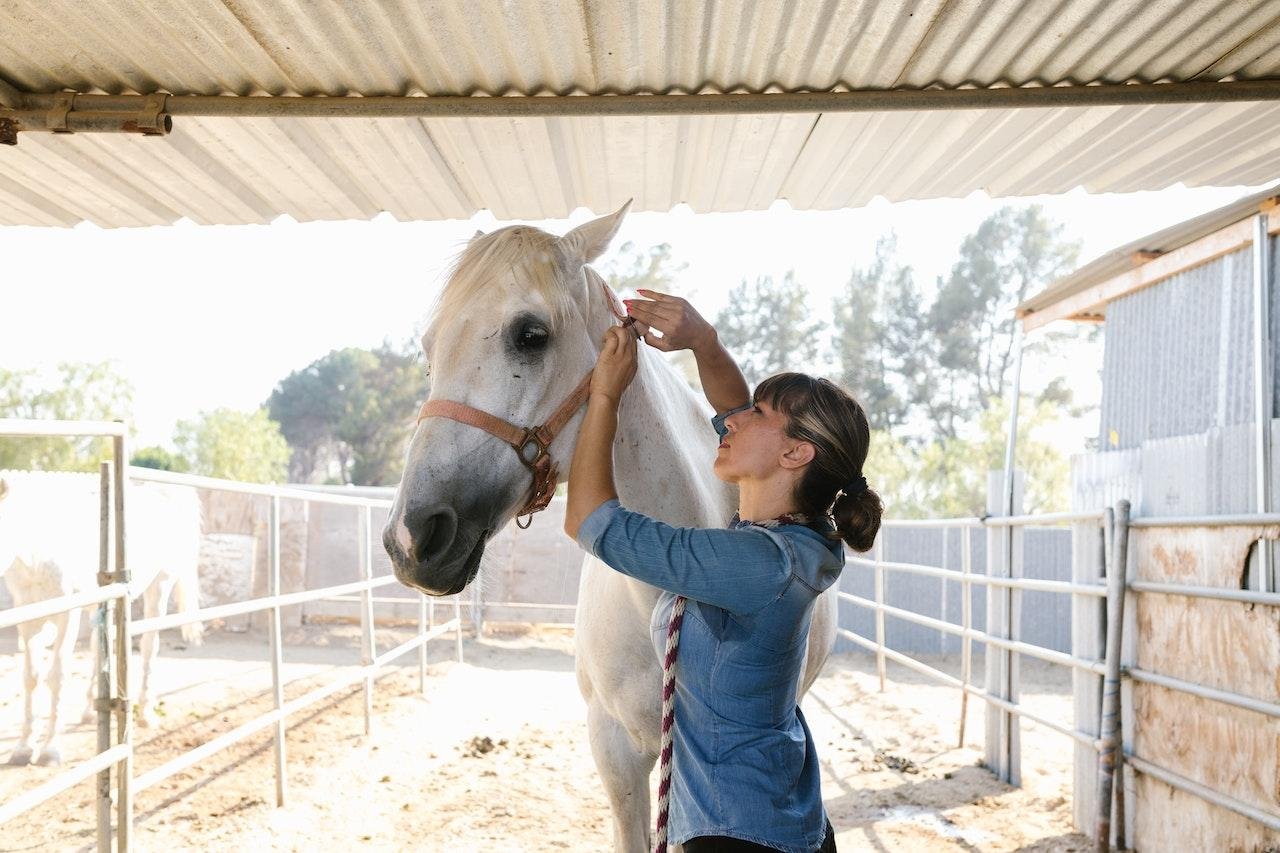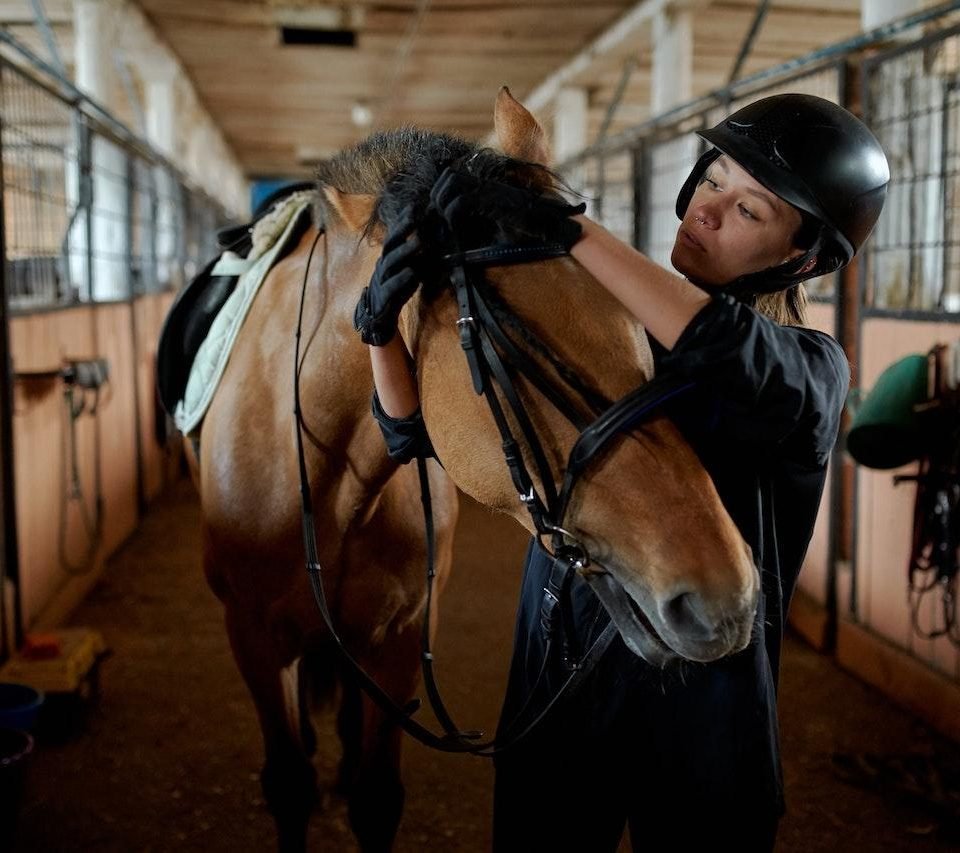Horses are magnificent creatures that require proper care and nutrition to stay healthy and thrive. Like humans, horses need a balanced and nutritious diet to maintain their health and well-being.
Proper nutrition is essential to keeping horses in good condition, preventing disease and illness, and helping them perform at their best.
In this article, we’ll explore the importance of proper nutrition for horses and provide a guide to feeding your horse.
Table of Contents
Nutritional Needs of Horses
Basic Dietary Requirements
Horses have three basic dietary requirements: water, forage, and concentrates. Water is the most essential nutrient and should always be available to your horse. Horses require an average of 10-12 gallons of water per day, depending on their size, activity level, and climate. Forage, such as hay or pasture, should comprise most of a horse’s diet.
Concentrates, such as grains or pelleted feeds, should only make up a small portion of a horse’s diet.
Fats
Fats are an essential source of energy for horses and can be found in forage and concentrates. They are significant for performance horses and pregnant or nursing mares.
Are you looking for more resources and information about horse care and nutrition? Check out Horsevills, a comprehensive online guide for horse owners, trainers, and enthusiasts. With expert advice and tips on everything from feeding and nutrition to grooming and training, Horsevills is the go-to source for all equine needs.
Vitamins and Minerals
In addition to water, forage, and concentrates, horses require vitamins and minerals to maintain their health. Horses require a variety of vitamins, including A, D, E, and K, which can be obtained through a balanced diet.
Minerals such as calcium, phosphorus, magnesium, and sodium are also crucial for horses.
Protein
Protein is essential for muscle growth and repair and maintaining healthy hooves, hair, and skin. Horses require protein in their diet, which can be obtained through forage and concentrates.

Feeding Your Horse
Determining Your Horse’s Weight
Before establishing a feeding program for your horse, you need to determine its weight. There are various methods to weigh your horse, including using a weigh tape, weight scale, or body condition scoring.
Feeding Schedule
Establishing a regular feeding schedule is essential for maintaining a horse’s health. Most horses should be fed twice daily, with access to forage throughout the day. Horses should be fed at the same time each day and in the same location.
Choosing the Right Feed
Choosing the suitable feed for your horse is vital for maintaining their health and meeting their nutritional requirements. When selecting a feed, you should consider your horse’s age, activity level, and any specific health conditions.
Feeding for Specific Needs
Performance Horses
Performance horses require a specialized diet to meet their high-energy needs. They may require additional concentrates and fats to maintain their performance level.
Pregnant or Nursing Mares
Pregnant or nursing mares require additional nutrition to support the growth and development of their foals. They may need extra protein, vitamins, and minerals.
Senior Horses
Senior horses may have difficulty maintaining weight and require a specialized diet that is easy to digest. They may require additional protein and fats to maintain their condition.

Common Feeding Issues
Obesity
Obesity is a common feeding issue for horses and can lead to health problems such as laminitis and insulin resistance. To prevent obesity, horses should be fed a balanced diet and have access to plenty of exercise.
Colic
Colic is a condition that various factors, including diet, can cause. To prevent colic, horses should be fed a balanced diet, have access to clean water, and exercise regularly.
Laminitis
(Source: Pexels)
Laminitis is a painful condition that affects a horse’s hooves and can be caused by various factors, including an imbalanced diet. To prevent laminitis, horses should be fed a balanced diet and managed to maintain a healthy weight.
Conclusion
Proper nutrition is essential to maintaining the health and well-being of horses. A balanced and nutritious diet that meets a horse’s basic dietary requirements, vitamins, and minerals is vital for keeping them healthy and preventing illness.
You can ensure your horse receives the nutrition they need by determining your horse’s weight, establishing a feeding schedule, choosing the right feed, and feeding for specific needs.
Finally, it is important to be aware of common feeding issues such as obesity, colic, and laminitis and take steps to prevent them. With proper nutrition and care, horses can live long and healthy lives.
Proper nutrition is critical to ensuring your horse is healthy and happy. But did you know that certain feeds can also help reduce horse stress? If you want to provide your horse with a calming diet, check out our guide on “Reduce Stress in Horses with Calming Feeds” from Horsevills. It’s an excellent resource for any horse owner looking to support their horse’s overall well-being through proper nutrition.










